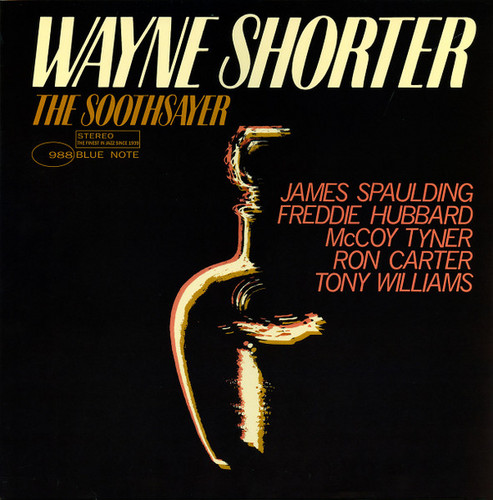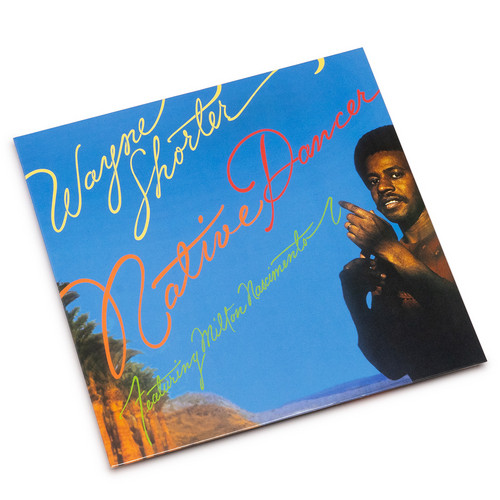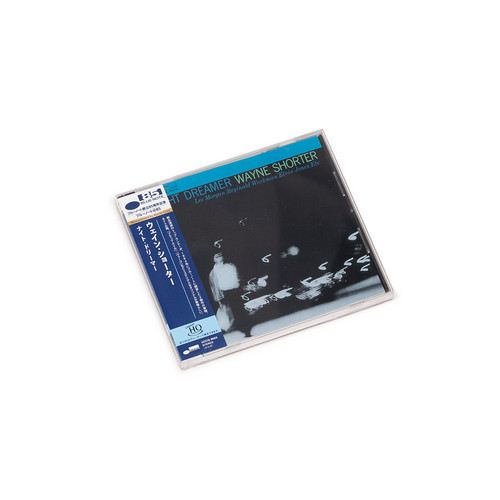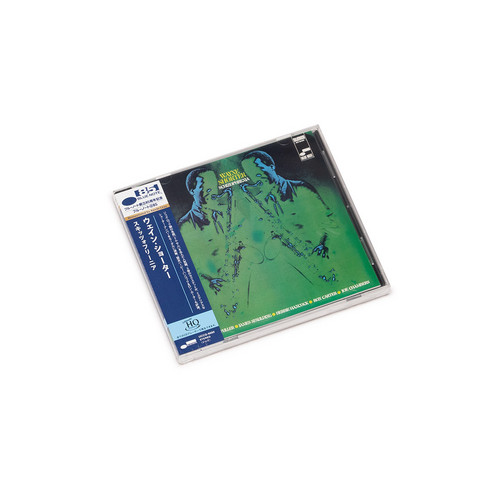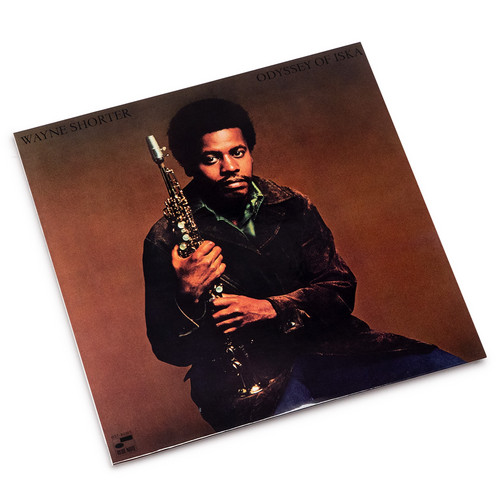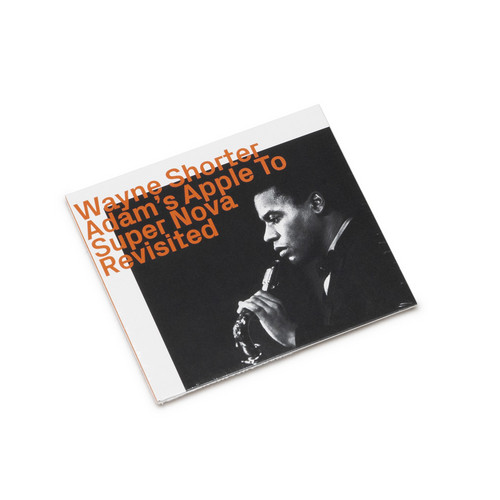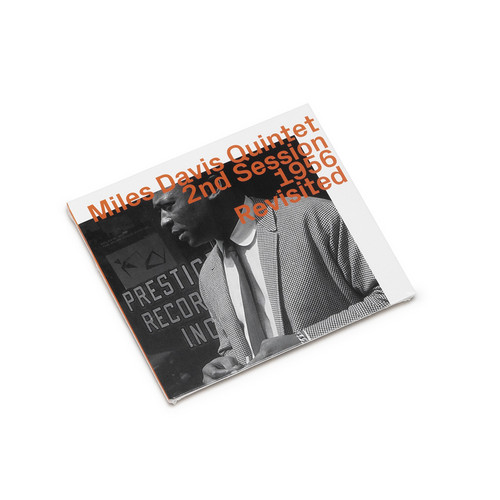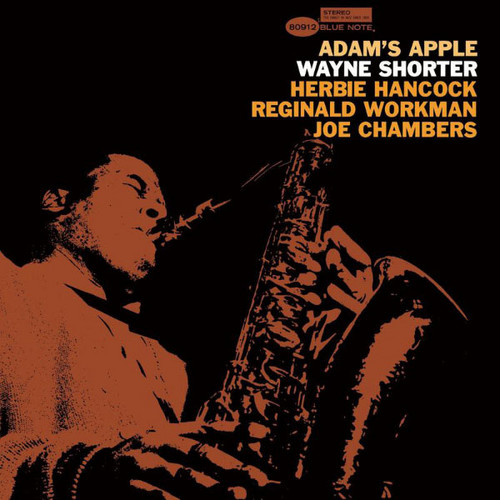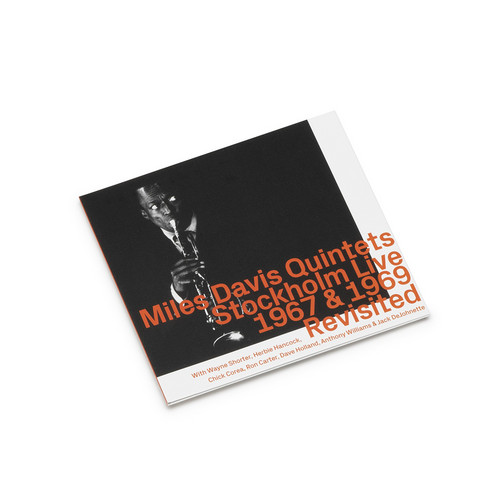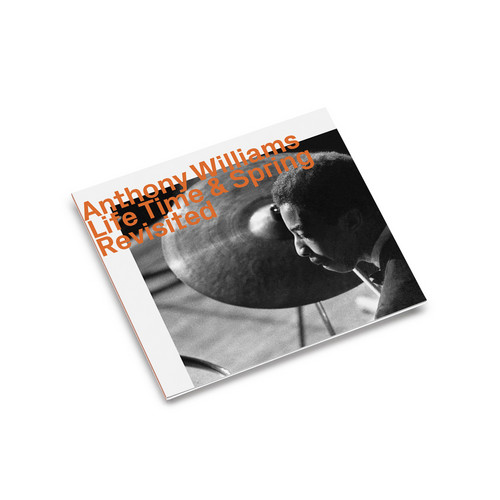Wayne Shorter
The Soothsayer
Blue Note Records proudly presents the reissue of Wayne Shorter’s legendary album, The Soothsayer—a vital chapter in the evolution of modern jazz and a showcase of Shorter’s compositional brilliance. Though recorded on March 4, 1965, at the iconic Van Gelder Studio, this remarkable session was not released until 1979, transforming it into one of jazz’s most revered hidden gems.
Upon its eventual release, critics hailed The Soothsayer as “hard-driving and as edgy as the time at which it was made,…
Native Dancer
"One of Shorter's best-selling albums from the '70s was Native Dancer, a Brazilian-oriented jazz-fusion masterpiece that boasts Herbie Hancock on acoustic piano and electric keyboards, and employs such Brazilian talent as singer Milton Nascimento (a superstar in Brazil) and percussionist Airto Moreira. Everything on this melodic, consistently lyrical effort is a jewel, and that includes Hancock's "Joanna's Theme," as well as pieces by Nascimento ("From the Lonely Afternoons" and "Ponta de Areia"…
Night Dreamer
“Night Dreamer is an album that finds Wayne Shorter in a state of transition as he was still rooted in the hard bop style that started his career, but also starting to lean toward the more abstract style that will serve for the greater part of his remaining career. It’s a talented, and somewhat unusual ensemble that Shorter has assembled here. McCoy Tyner and Elvin Jones, at that time, were mostly known for their famous work with Coltrane, but in 1964, when this album was recorded, Tyner and Jon…
Schizophrenia
"Wayne Shorter’s Schizophrenia found the legendary saxophonist at the pinnacle of post-bop with a sextet of like-minded musical explorers including James Spaulding, Curtis Fuller, Herbie Hancock, Ron Carter & Joe Chambers performing Shorter originals like ‘Tom Thumb’, ‘Go’, and ‘Miyako’. Recorded on March 10, 1967, at Van Gelder Studios, Englewood Cliffs, New Jersey." - HHV
Odyssey Of Iska
The winds of change were blowing through Wayne Shorter’s life and career in 1970. The saxophonist had just left Miles Davis’ group and was soon to form his collective fusion band Weather Report. His music was evolving too as he began to delve into his own unique fusion explorations on his previous two Blue Note recordings Super Nova and Moto Grosso Feio. Recorded in August 1970, the mesmerizing Odyssey of Iska would be the last release of Shorter’s early Blue Note period. The album was a tribute…
Adam’s Apple To Super Nova "Revisited“
“The word ‘jazz,’ to me, only means I dare you.” - Wayne Shorter
2nd Session 1956 Revisited
Here is a chance to hear Miles Davis in something close to real time. Small matter that most collectors of hard bop will have these sides already and will be familiar with a particular running order. Perhaps those who have invested in the complete sessions will have a clearer sense of the continuity of these remarkable sessions, but that now familiar obsession with the burrs and snarf of the studio process may win out over musical appreciation. What happened at Van Gelder’s on October 26 1956 is…
Adam's Apple
It is unclear whether it was Wayne Shorter’s initial intention to do anything particularly ambitious during the two visits to Rudy Van Gelder’s studio in February 1966 that produced Adam’s Apple. Certainly, neither the repertoire—five recently composed Shorter tunes in AABA format and “502 Blues,” by pianist Jimmy Rowles, a hard drinker, as Shorter was at the time (the subtitle denotes the police code for drinking and driving)—nor the treatments contain the radical originality of the five pieces…
Miles Davis Quintets Stockholm Live 1967 & 1969 Revisited
Temporary Super Offer! 'Was there more than one Miles Davis? Could he be both the Prince of Darkness and the purveyor of cool? A drug addict and an athletic boxer? A hip bebopper and a protohippie? A flamboyant dresser and a shy vulnerable soul? A brutal misogynist and an insecure romantic? The answer is yes, and yes. Miles Davis was both a creator and a destroyer. His chameleon-like nature can be explained by the times in which he lived and created his art. These live recordings in Stockholm, S…
Life Time & Spring (Revisited)
Temporary Super Offer! "Life Time posited a radicalism quite different from the other watershed recordings of 1964. Anthony Williams had an overt, unconventional approach to form, accentuated by the time constraints of a LP side and the various configurations he employed... By the time the 19-year-old Williams returned to Van Gelder Studio to record Spring with Hancock, Peacock, Rivers, and Shorter, the avant-garde was ascending... He retained some of the parameters
of Life Time ..." - Bill Sho…
